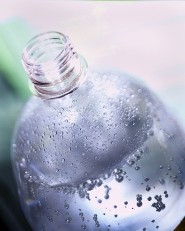
Some of the popular types of minerals which are found in tap water and their respective role or function are being listed below:
Magnesium- It has known to be the best element in maintaning the immune system, easing the body and muscles and even help lower blood pressure. The other known effect will the stress coping due to it relaxing function on nerve and myscles.
Chloride and Bicarbonates- Both play a vital role in digestion and assist in keeping ph balanced in our body system, specifically within the stomach and upper and lower intestines.
Iron- Without Iron, our blood "transportation" will not be working well. Even it is just a small amount Iron needed, it's still a necessary mineral that help our blood circulate better to deliver oxygen throughout the body.
Sulfate- Also found in many different types of our tap waters and is used by our body as a cleansing and detoxifying agent. Responsible for our stronger skeletal system, including the strengthening of the teeth.













